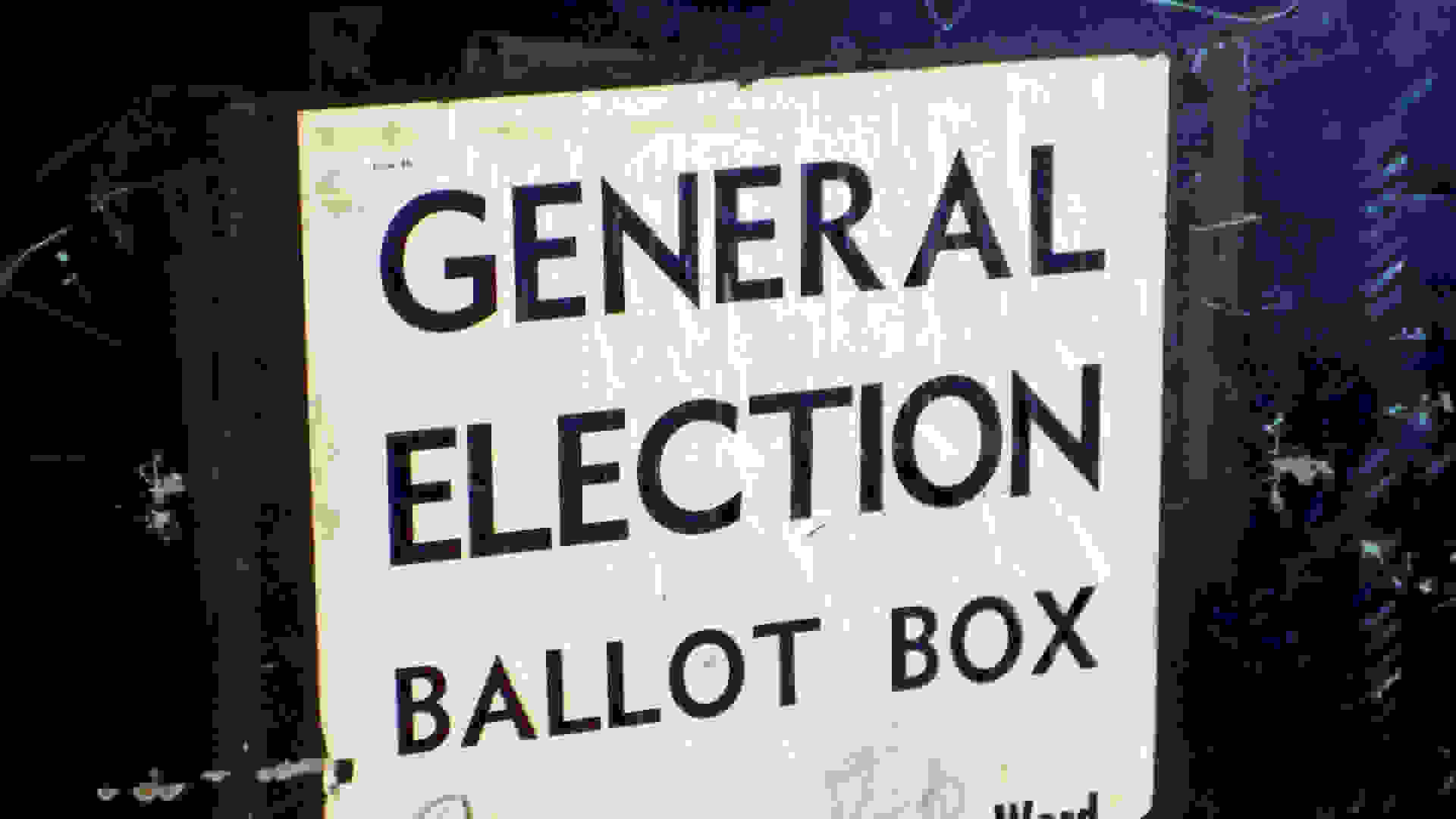Do mock elections really matter?
Tue. 12 May 2015
Why even casting your ballot in school elections can have a lasting effect on youth political engagement

, UCL Institute of Education
Dr Avril Keating
Dr Avril Keating
Director, Centre for Global Youth, UCL Institute of Education
Dr Avril Keating is a Senior Lecturer in Comparative Social Science at the UCL Institute of Education's Department of Education, Practice and Society, Director of the Centre for Global Youth, and a Contributing Academic to the ESRC Centre for Learning and Life Chances in Knowledge Economies and Societies (LLAKES).
Avril's research focuses on the evolution of civic attitudes and agency during youth, and she is involved in a range of projects that explore this theme from a comparative, inter-disciplinary and mixed-method perspective.
Get our latest research, insights and events delivered to your inbox
Share this and support our work
The youth vote was an important theme in the run up to the 2015 general election, and it was heartening to see so many different organisations try to reach out to young voters. Whether it was Bite the Ballot or Channel 4’s E4, all worked to try to ensure young people got their say on May 7th.
These campaigns largely focus on young people who are over the age of 18 and eligible to vote in this election. But schools and teachers can play an important role even before their students reach the age of majority. In addition to formal Citizenship classes, schools also provide activities that give students a chance to learn about democracy through ‘hands-on’ experience. Some of the most popular (and effective) activities in this vein are school councils, debating teams, and mock elections, which the Hansard Society has been supporting for 50 years.
Analysis of the Citizenship Education Longitudinal Study in England (CELS) shows that hands-on activities like these can have a positive impact on young people’s attitudes towards politics. Moreover, these benefits are not temporary. We found that students who participated in mock elections, debating teams and/ or school councils were more likely to have positive attitudes towards political participation even after they had left school. And it’s not just voting that these activities encourage; our participants were also more likely to report that they had taken part in non-electoral types of participation, such as boycotting products, contacting politicians, and using social media for political purposes. These positive benefits were found even after we controlled for other factors that are known to boost political participation among adults (such as high levels of education and high socio-economic status). In other words, mock elections and school councils don’t just benefit middle class students or young people who are already politically engaged.
There are several reasons why activities like these provide such an important (and lasting) impression on youth attitudes. For one, these activities allow young people to acquire practical as well as cognitive skills. For example, mock elections give students an opportunity to participate in (mock) election campaigns and to run as candidates. In the process, students practice politically-relevant skills such as public speaking; formulating and communicating opinions about political issues; negotiating with others; and learning to work in groups.
Even simply filling in the mock ballot paper can be beneficial, as it not only allows students to become familiar with how to cast their vote, but it can get young people into the habit of participation. Many political scientists believe that voting is a habit and that people are more likely to vote if they have done so in the past. Young people typically do not get a chance to form this habit until after the age of 18, but mock elections can help to start the habit-formation process.
Schools also send an important message to young people when they give them opportunities to practice democracy at school. In particular, these activities help to reinforce the social norm that political participation is worthwhile. Exposing young people to this idea while they are at secondary school is particularly important. Adolescence is a formative period and the norms, identities and habits that are formed during this period persist into adulthood and help to shape political participation in later life.
More importantly, by offering these activities schools are also signalling that young people’s opinions matter. This can help young people to feel more included, and boost their confidence and sense of efficacy. Young people are more likely to take part if they feel that their voice will be heard, and that their efforts will make a difference.
Of course, simply holding mock elections in schools will not address all of the challenges surrounding youth political engagement. If only it were that easy. Families, political parties, NGOs and the media must also play their role in engaging young people with politics. And of course schools need to be given adequate support and resources in order to play their part. Politicians regularly pronounce their support for citizenship education, but if any type of citizenship education is to be effective, policy announcements in this vein must be backed-up with sustained political commitment, practical support for schools, and trained teachers. Without these vital resources, it will be difficult to live up to the potential that different types of citizenship education can have and give youth political engagement the boost it still clearly needs.
This post drew on a then-forthcoming paper in the Hansard Society's journal 'Parliamentary Affairs', since published as Avril Keating and Jan Germen Janmaat, ‘Education Through Citizenship at School: Do School Activities Have a Lasting Impact on Youth Political Engagement?', Parliamentary Affairs, Volume 69, Issue 2, April 2016, pp 409-429
More
Related
Blog / 2019 Mock Elections: Higher turnout and different outcome than the real general election
Schools making up an ‘electorate’ of over 46,000 young people returned their results to the Hansard Society's 2019 Mock Elections, which were held to coincide with the December general election and continued a series extending back over 50 years. Labour emerged as the clear 'winner' of the 2019 mock poll.
Blog / The 2019 Liaison Committee report on the Commons select committee system: broadening the church, integrating with the Chamber
In its recent landmark report, the House of Commons Liaison Committee recommended a widening of the circle of those that select committees should hold to account, and a turn towards the public in all committee activity, but also tighter links between select committees and the House of Commons Chamber.
Blog / The Brecon and Radnorshire recall petition process: personal reflections by Sir Paul Silk
As an elector in Brecon and Radnorshire, Hansard Society Trustee Sir Paul Silk sets out 12 shortcomings he observed in the recall petition process that led on 21 June to the triggering of a parliamentary by-election in the constituency.
Blog / Contributing to the first full-scale review of Lords scrutiny committees in a quarter-century
Our wide-ranging recommendations to the House of Lords Liaison Committee's review of Lords scrutiny committees, summarised here, aim to improve legislative scrutiny, facilitate more effective horizon-scanning, address post-Brexit scrutiny challenges, and much more.
Blog / "You can look, but don't touch!" Making the legislative process more accessible
Can technology help change the culture and practice of parliamentary politics, particularly around the legislative process?
Events / Future Parliament: Hacking the Legislative Process // Capacity, Scrutiny, Engagement
From finance to healthcare, technology has transformed the way we live, work and play, with innovative solutions to some of the world’s biggest challenges. Can it also have a role in how we make our laws?
Blog / Corbyn's 'Save Our Steel' e-petition shows why the rules governing the recall of Parliament need to change
In a time of crisis Parliament is hamstrung if it is in recess. MPs are not masters of their own House because, in accordance with House of Commons Standing Order 13, only government ministers - in reality the Prime Minister - can request a recall of Parliament.
Blog / Do mock elections really matter?
Why even casting your ballot in school elections can have a lasting effect on youth political engagement
Reports / MPs and Politics In Our Time
This 2005 report reviewed the evidence on public attitudes towards MPs and political institutions, and presented findings on MPs' own views of their relationship with voters. It set out a far-reaching agenda for change in the relationship between electorate and the elected in the interests of building public trust and encouraging democratic renewal.
Reports / The Challenge for Parliament: Making Government Accountable. The Report of the Hansard Society Commission on Parliamentary Scrutiny
This is the influential 2001 report of the Hansard Society Commission on Parliamentary Scrutiny, chaired by former Leader of the House Lord Newton of Braintree. It urged a step-change in the rigour and importance afforded Parliament's scrutiny work, aimed at putting Parliament at the apex of the system which holds government to account.
Latest
Guides / Financial Scrutiny: the Budget
In order to raise income, the government needs to obtain approval from Parliament for its taxation plans. The Budget process is the means by which the House of Commons considers the government’s plans to impose 'charges on the people' and its assessment of the wider state of the economy.
Guides / Financial Scrutiny: the Estimates Cycle
In order to incur expenditure the government needs to obtain approval from Parliament for its departmental spending plans. The annual Estimates cycle is the means by which the House of Commons controls the government’s plans for the spending of money raised through taxation.
Data / Coronavirus Statutory Instruments Dashboard
The national effort to tackle the Coronavirus health emergency has resulted in UK ministers being granted some of the broadest legislative powers ever seen in peacetime. This Dashboard highlights key facts and figures about the Statutory Instruments (SIs) being produced using these powers in the Coronavirus Act 2020 and other Acts of Parliament.
Briefings / The Economic Crime (Transparency and Enforcement) Bill: four delegated powers that should be amended to improve future accountability to Parliament
The Bill seeks to crack down on ‘dirty money’ and corrupt elites in the UK and is being expedited through Parliament following Russia’s invasion of Ukraine. This briefing identifies four delegated powers in the Bill that should be amended to ensure future accountability to Parliament.
Articles / Brexit and Beyond: Delegated Legislation
The end of the transition period is likely to expose even more fully the scope of the policy-making that the government can carry out via Statutory Instruments, as it uses its new powers to develop post-Brexit law. However, there are few signs yet of a wish to reform delegated legislation scrutiny, on the part of government or the necessary coalition of MPs.